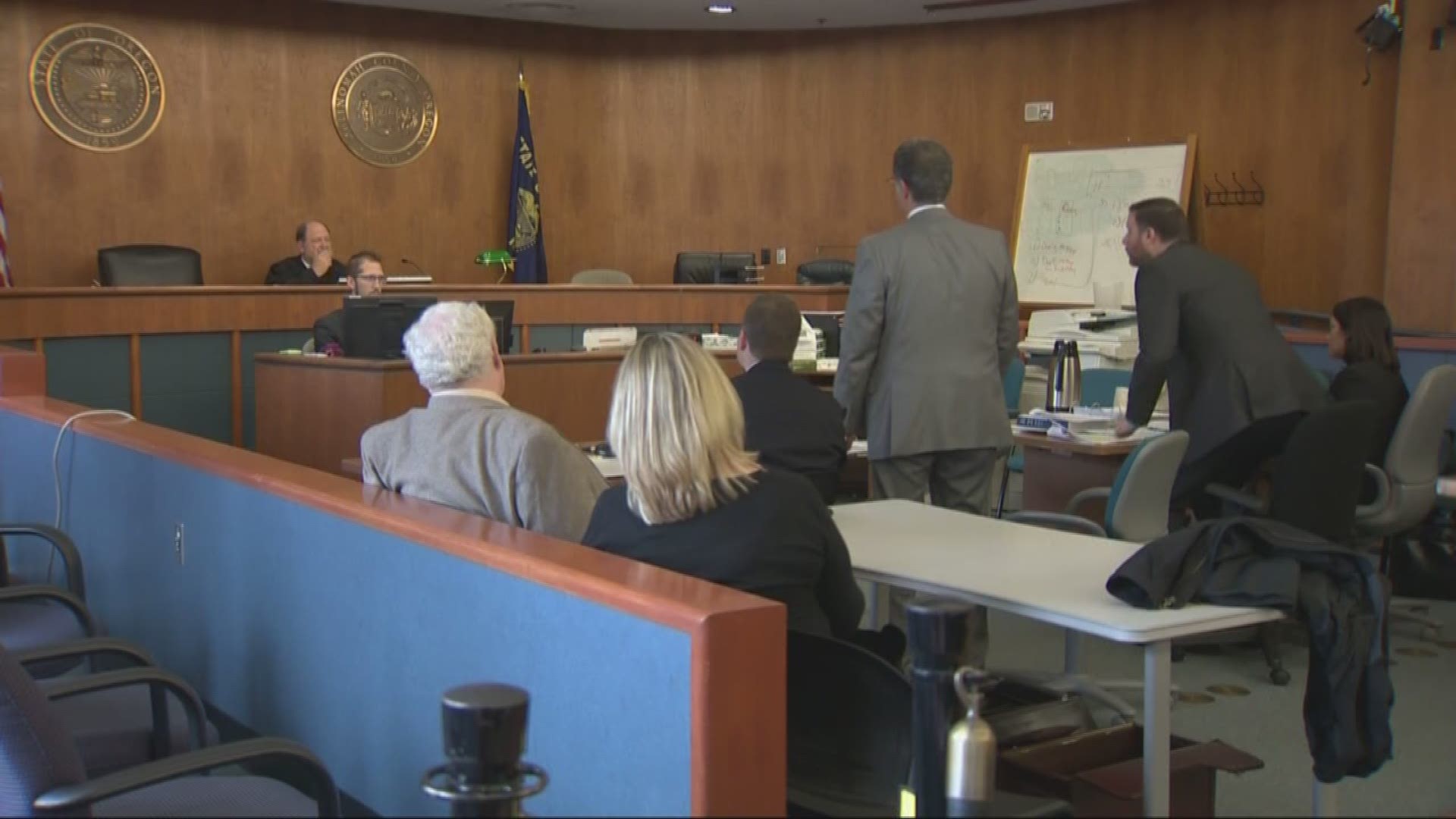PORTLAND, Ore. -- A lawyer for landlords today asked a Multnomah County judge to strike down a City of Portland law for renters.
The new law took effect February 4, 2017 and remains today.
It forces landlords to pay their renters if they evict the renter for no reason at the end of a lease or if they increase rent by more than 10 percent over 12 months.
Amounts landlords must pay vary from $2,900 to $4,500 depending on the size of the place the tenant was renting.
An attorney representing landlords argue the law is basically rent control, which is illegal in Oregon.
“We think that the city council is basically attempting to control and influence rents by using, as a hammer, relocation expenses,” Lawyer John DiLorenzo said. “Which don't apply to anyone else, only the people who want to increase rents.”
Denis Vannier, the city’s lawyer, argued the ordinance is perfectly legal because cities have a right to create laws except in areas that the legislature specifically prohibits.
“For that reason, in this case we don't believe the legislature has done that and we believe that at the end of the day the court will uphold the city ordinance,” he said.
Advocates say the new law is a reasonable way to slow rising rents that are changing the city.
“People have been really been impacted by rents going up. As a result of that economic disparity is increasing in the city of Portland; racial disparity is increasing in Portland,” said Steve Goldberg, a spokesman for Portland Renters United.
But landlords say it’s not fair for the city to penalize them and hurt the investments of thousands of people who own rentals.
Matt Williams is one of those owners. He also manages rental properties for other owners.
“I represent about 125 owners and these owners are not slum lords and they're not rich. They're individuals who purchased this asset so they don't have to live off social security when they get older. These are their retirement plans, this is the college education for their kids. This is their opportunity not to have to depend on the government later on,” he said.
The judge in the case gave both sides another week to submit legal papers.

